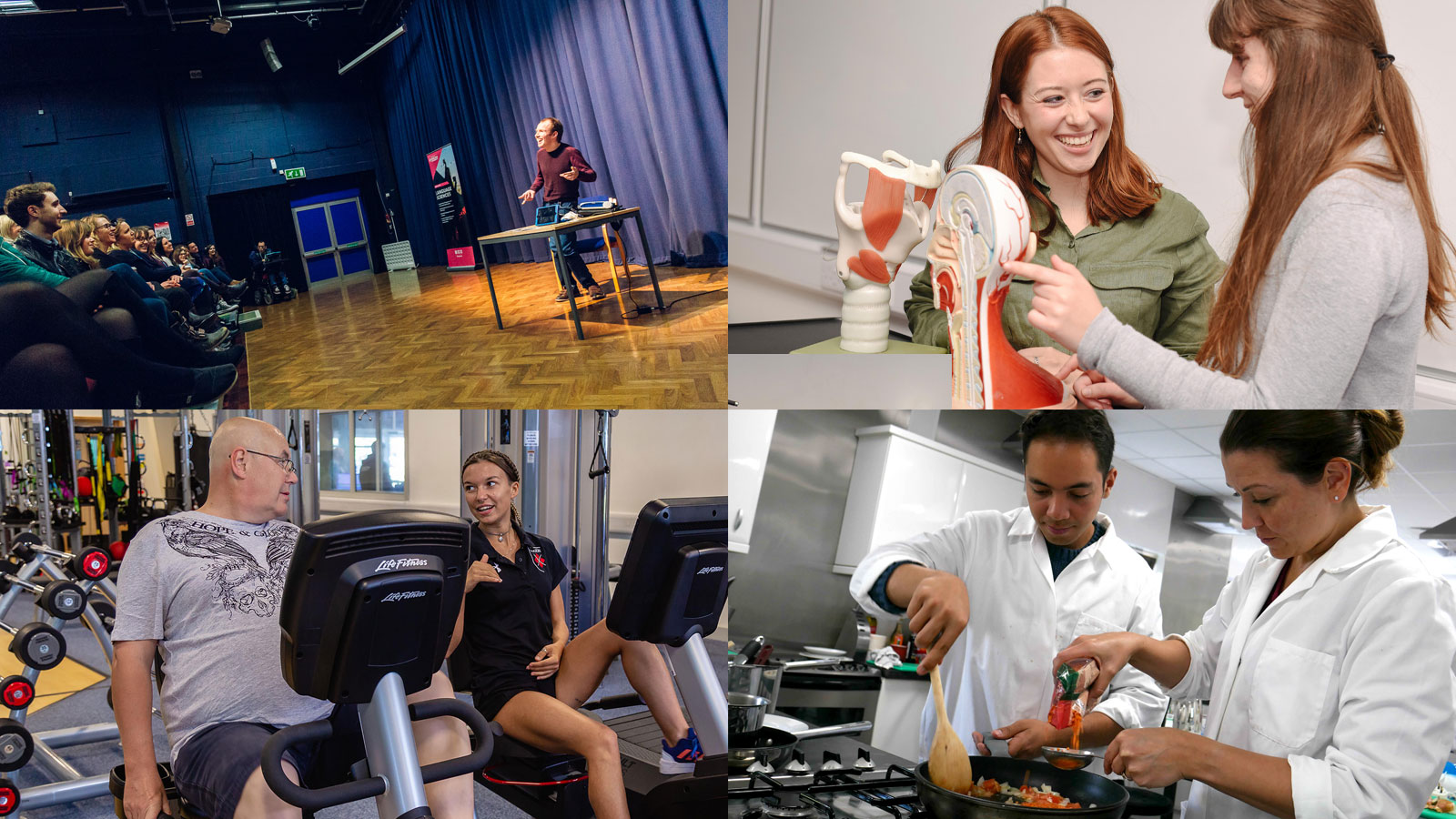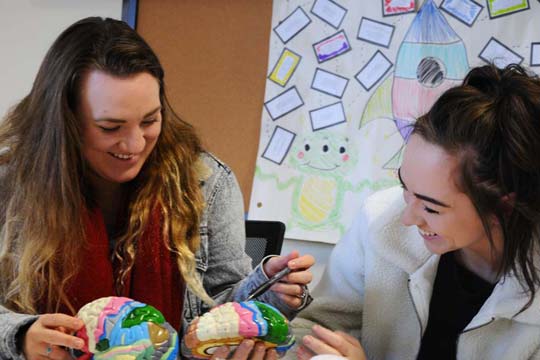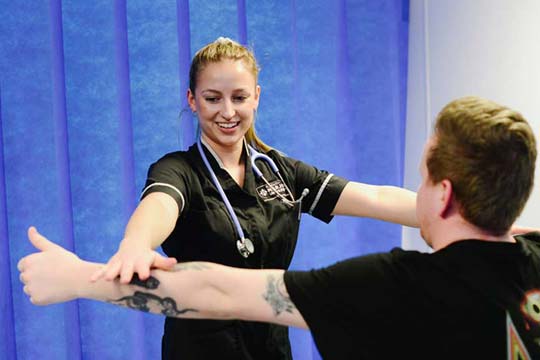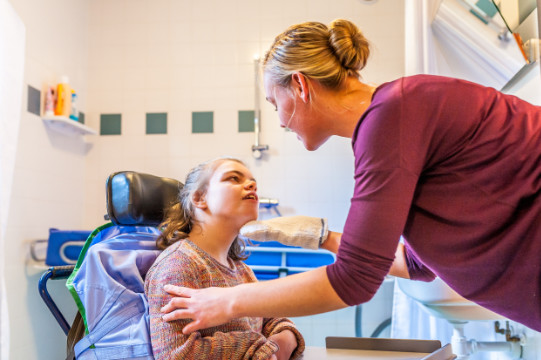Health & Wellbeing
Help others to get the most out of life. These degrees cover a wide range of approaches to health and wellbeing, including physical, mental, nutritional and social health. They include supporting people to make changes so they can live fulfilled and happy lives.

Undergraduate courses








M.Ost. Master of Osteopathic Medicine (Undergraduate Pre-registration Master's)
Undergraduate



Postgraduate courses







Student testimonials
Lisa-Marie Richey, BSc (Hons) Speech & Language Sciences.
“I like the small class sizes and that I can speak to a lecturer one-to-one. Marjon offers me more than my degree, they support you in your best and worst times and gave me the confidence to succeed!”
Charlie Thomas, MSc Sport and Exercise Psychology.
“The facilities here have really helped me to put what I learn into practice. There is a community atmosphere, everyone knows everyone and it feels really friendly and warm!”
Hannah Smith, 3rd year, BSc (Hons) Sports Therapy.
“I love the hands on nature of the course, it’s like we are thrown in at the deep end but it’s the best way to learn. The clinic is open to the public and allows us to practice everything we learn.”
Hannah Burton, 2018 BSc (Hons) Speech & Language Therapy graduate.
“My favourite memory is everything you didn’t expect from uni, like setting up societies and when the Giving Voice Society won an national award, more than I thought you’d ever get at uni.”

Plymouth is a buzzing student city and is close to stunning coastline, secluded beaches and the inspiring Dartmoor National Park. It's the perfect place to be!

